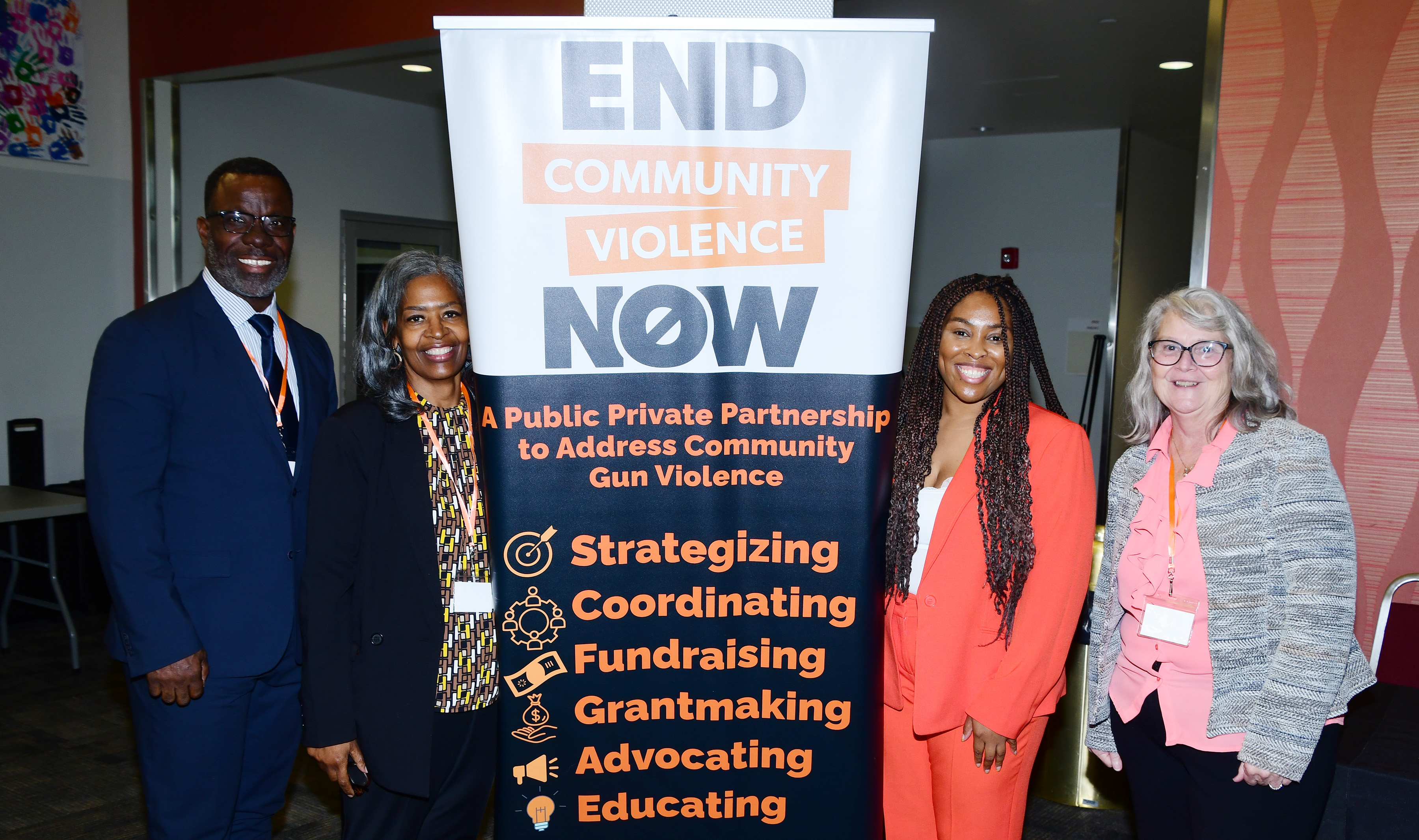
DSU hosts Community Violence Intervention Summit
The issue of community violence was thoroughly discussed at Delaware State University on Oct. 14 as the Martin Luther King Jr. Student Center was the site of the inaugural Community Violence Intervention Summit.
The summit was the result of a partnership between the End Community Violence Now (ECVN) organization and DSU’s Center for Neighborhood Revitalization and Research, as well as the University’s Interdisciplinary Health Research Center’s Community Engagement and Dissemination Core. The daylong Summit brought together a diverse group of community leaders, researchers, service providers, policymakers, and advocates to address the pressing issue of violence prevention.
The Summit participants focused on community-informed advocacy, the latest research, and real-world applications of violence prevention, with the goal of fostering collaboration and inspiring innovative approaches to addressing violence in ways that are inclusive, effective, and sustainable.
“This summit is about breaking down barriers and building bridges – between research and practice, between government and community, and most importantly, between people who are committed to creating safer, stronger neighborhoods,” said Lauren Footman, Executive Director of End Community Violence Now. “Together, we will turn ideas into action and forge solutions that protect our communities, empower residents, and inspire lasting change across Delaware and beyond.”
The summit featured prominent leaders in the field, including Rob Wilcox and Gregory E. Jackson, both of whom formerly served as Deputy Directors of the inaugural White House Office of Violence Prevention. Their federal-level experience provided insights into how national strategies can be adapted for local impact.
The Summit taking place at DSU was appropriate on two counts. One, the event was held in the Martin Luther King Jr. Student Center, the namesake of one who was a champion of non-violence throughout his civil rights career.
And two, DSU’s main campus is located in the historic city of Dover, the capital of Delaware. While Dover covers roughly 23 square miles, its crime rate is more than double that of the state and the nation. Dover has one of the highest crime rates in the United States, with crime steadily rising since 2020 – even as overall crime trends have been declining across the U.S.
“Delaware State University is proud to host this summit and I want to commend End Community Violence Now for bringing together this group of leaders and policymakers who aren’t just studying the issue of community violence and trauma-informed responses - but using that research to make a real difference in our communities,” said Tony Allen, President of Delaware State University. “I especially want to recognize our incredible DSU faculty and staff at the Center for Neighborhood Revitalization and Research, and the Interdisciplinary Health Research Center, for their contributions to this important work.”
The event also highlighted the contributions of leading research organizations, including Dr. Jordan Costa and Mike McLively of Giffords and Dr. Dan Semenza of Rutgers University, who joined other public health experts and policymakers to explore how evidence can be translated into practice. The Summit examined the intersections of community violence, suicide, and domestic violence, providing a space for policymakers, practitioners, and implementers to learn from each other and identify strategies to prevent harm and promote healing across neighborhoods.
Home to some of the nation’s most skilled researchers, DSU’s Center for Neighborhood Revitalization and Research (CNRR) has been at the forefront of utilizing academic research to solve real-world problems. By partnering with nonprofits, government agencies, and social service providers, CNRR has successfully sustained neighborhood vitality, invigorated local culture and the economy, and provided students with service learning, internships, and research opportunities.
“The CVI Summit marks a milestone in the collaborative work undertaken by a diverse network to create community informed and responsive interventions to community violence. It provides us with an opportunity to celebrate that work as well as learn and innovate together for better and longer lasting outcomes,” said Dr. Dorothy Dillard, director of the Delaware State University Center for Neighborhood Revitalization and Research and IHER Center CED Core Lead.
End Community Violence Now is the state of Delaware’s community-based Office of Violence Prevention. This public-private partnership seeks to break the cycle of violence through coordinated and sustained investments in evidence-based programs. This includes community engagement and education campaigns, policy advocacy, stakeholder strategy, as well as offering technical assistance and grant-making support to local organizations on the ground doing the difficult, but necessary work. ECVN envisions a future where all Delawareans are safe from the rising threat of gun violence.

